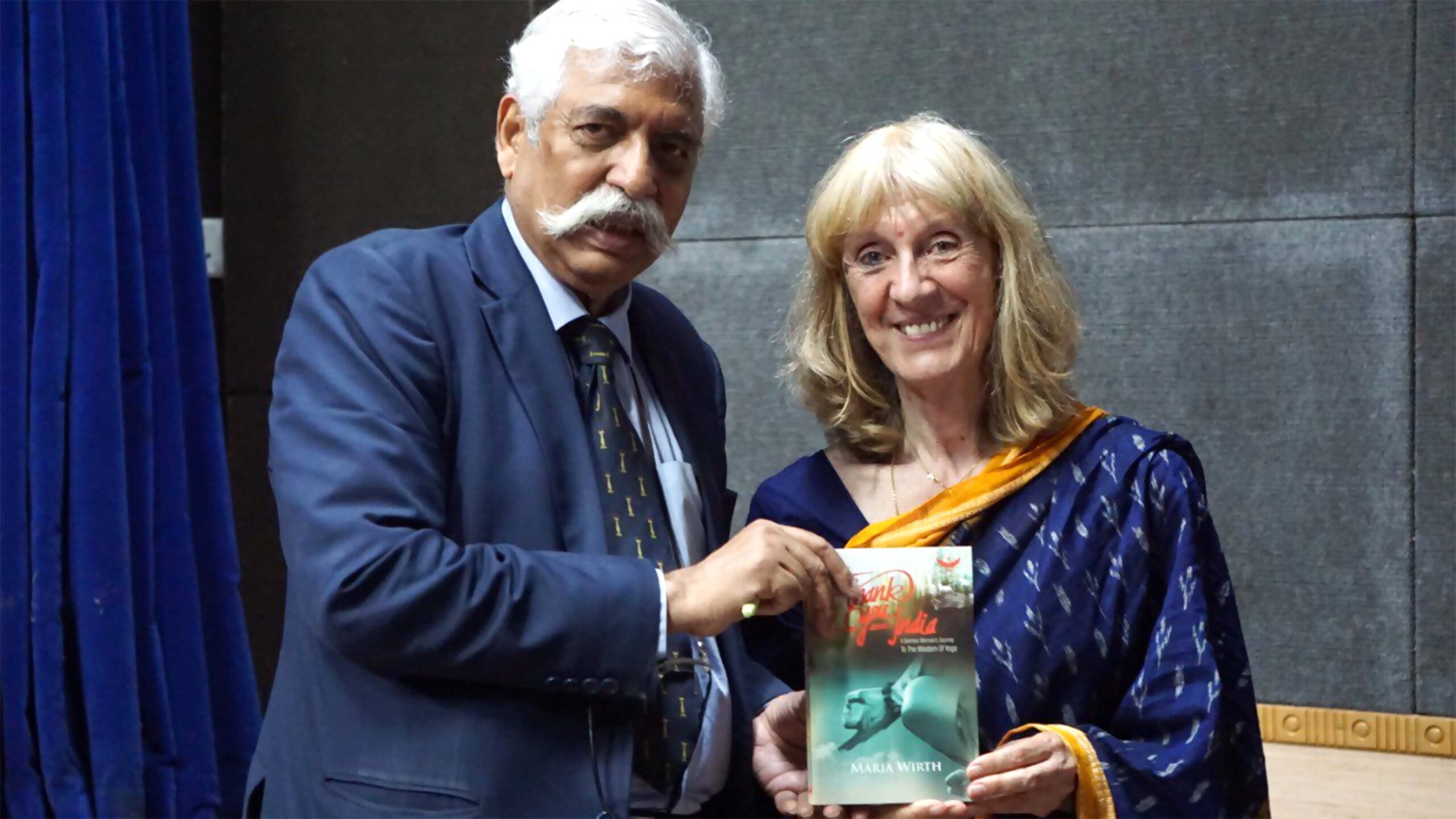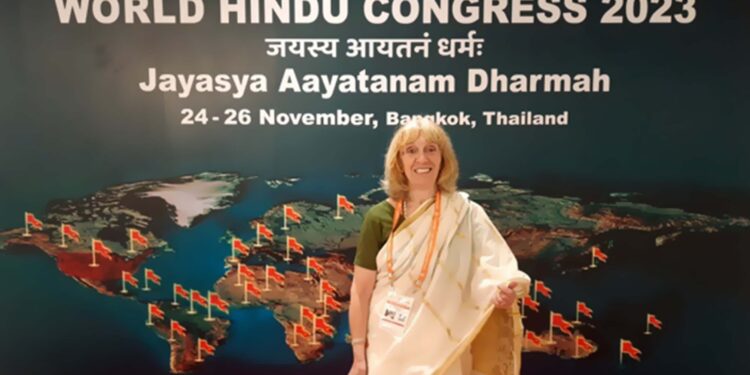In recent weeks, two big American influencers, Russel Brand and Candace Owen, declared that they got baptized. Others, who are Christians like Tucker Carlson, keep stressing the importance of Christianity for a healthy society. Jordan Peterson explained why atheism is irrational. And of course, he is right. There MUST be a power greater than humans behind this miraculous, vast universe.
Even though I criticize Christianity, I consider it for normal Westerners (not clerics) much preferable to believe in Jesus and his Godfather than to be rootless atheists or communists, as long as these Christians don’t buy into the dogma that “only Christianity can save you”.
Unfortunately, in America (not so much in Europe), many buy into the supremacy claim, as they have only Islam and Judaism as comparison, and the Christian God of the New Testament is relatively less violent and less fiercely protective of only his own people.
NRI Hindus generally do not discuss their faith, and have allowed the Church to shape a negative view of Hinduism. But even in Bharat, many Hindus don’t articulate, and maybe don’t know, the essence of the tradition, which they have inherited.
I watched recently a documentary on India which had been aired on German public TV. It was highly biased against PM Modi and Hindus. Yet there was an incident, where a diamond businessman could have easily corrected the view of Hinduism for the German viewers:
“What is special about India”, the businessman was asked.
His reply: “we believe in God, get our strength from Him, start our day with a common prayer.”
“Which God? You have so many,” the interviewer asked.
“Yes, we have many. I personally pray to Swami Narayana.” He then asked someone standing nearby, ‘to whom do you pray?’
If only he had mentioned that all the different Gods are aspects of the one all-pervading Brahman, Hinduism would have looked very differently to the German viewers and closer to the truth, as well.
I recently tweeted: “A pity that Vedic knowledge/ Hinduism is not known in the West. It is the best option for humanity. Sadly, certain forces don’t want people to know that.”
A foreigner reacted to my tweet:
“Excuse me, but yoking yourself to Hindu DEMON GODS is NOT the best path for humanity.”
This tweeter has obviously fallen for mischievous propaganda.

It reminded me of the World Hindu Congress in Bangkok in November 2023. I was asked to talk about “Articulating Hindu Thoughts”, because this is an area where Hindus don’t do a good job. And unfortunately, it’s true.
There are several videos on the net, where for example Shiva is compared to Satan – not by missionaries but by people who talk positively about the Gods of ancient Egypt or Mesopotamia. Usually, India’s ancient tradition is not mentioned at all, and if it is, negatively.
So, the comment about the Hindu DEMON GODS didn’t surprise me, but pained me nevertheless. Can we Hindus do a better job in communicating what Hinduism is about? (I use Hinduism, as this is the term under which the Vedic tradition is known abroad, even though Hindu or Sanatana Dharma would be better, as ‘ism’ connotes a dogmatic system, which Hinduism is not.)
I remembered my notes from the World Hindu Congress:
First: we need to clearly articulate what is most essential in the Vedic tradition. It is: you are not what you think you are. You are not a separate body and mind but you are one with the one Brahman.
Brahman alone is true. The world is an appearance in Brahman. (Brahman satya, Jagat mithya)
Brahman is the absolute Truth, and the world and everything in it, is the relative truth.
It means, only Brahman is fully independent. It needs nothing else to exist and is eternal. Yet the world is dependent on Brahman and temporary. And here ‘the world’ includes not only the visible universe but also the much maligned “many Hindu Gods”, who are far more powerful and long-lived than humans, and as real as we humans, but are also not absolutely true. They also depend on the one Brahman for their existence.
Brahman is beyond words and thoughts. It is pure, thought-free consciousness or awareness. It is purely “I AM” without “this or that”.
This pure consciousness is the substratum on which thoughts and everything else appear. Thoughts are also objects. I can observe ‘my’ thoughts. So, who am I? This is the most important question.
Aham Brahmasmi (I am Brahman) or Ayam Atma Brahma (this Atma is Brahman) claim the Vedas. Sadhana is needed to wear down the veil that hides our innermost Self. Brahman is the only Subject.
So, is there any doubt that “God”, as the West calls the highest truth, is within us? Are we not all conscious, even though we are usually conscious only of the ‘objects’ (thoughts) within our ‘pure’ (thought-free) consciousness?
To discover the thought-free consciousness is the meaning of life. And this thought-free consciousness is of course very close to us. Closer is not even possible. It is our essence, our Self.
Does this make sense? Does it not sound like top philosophy?
200 years ago and even until 40 years ago, it made sense also to people in the West, to philosophers, to scientists and to many hippies. Yet today, this profound knowledge is completely blacked out. If you google “the greatest philosophers of all time”, not a single Indian is mentioned among the 50 listed, while ancient Greeks, Chinese and Arabs are mentioned.
WHY???
This is surely intriguing.

Unfortunately, even modern Indians have forgotten this basic knowledge.
Yet those Hindus who knew, didn’t do a good job in communicating their knowledge. Even a few years ago, 70 years after the British left, I attended an Interfaith Dialogues and was shocked that the Hindu side didn’t ask any straight question to the representatives of the Abrahamic religions and did not mention the positive sides of Hindu Dharma.
“I can’t afford to be controversial. I have a family”, a participant explained to me his timidity during tea break.
This is very unfortunate, because not to put things straight can become very costly for Hindus in future. Tens of millions of Hindus have been killed due to a terrible misunderstanding or due to an intentional disinformation campaign that “Hindus go against the Will of the “only true God” who doesn’t want other Gods to be worshipped beside Him.”
The Abrahamic religions claim, “there is only one God (separate from his creation)”.
The Rishis claim “there is only God /Brahman (pervading and containing the universe)”.
Is it possible to discover who is right?
Yes, it is. Because the truth can be experienced. Even some Christian and Muslim mystics discovered their oneness with God or Allah – names don’t matter for That what is unnameable. Hindus, too, have other names besides Brahman, for example simply Tat (That), Parabrahma, Parama Shiva…
Other points which speaks greatly in favour of Hindus.
For example, only Hindus pray for the whole world to be happy. “Loka samastha sukhino bhavantu.” In contrast, the Abrahamic religions pray only for their own group and even – incredibly – believe that their God is favouring only them and sends others to hell. It means, their God is more like a tribal God and not the source and basis of all that exists.
Further, Hindus pray to the Gods and not to the demons. Every day, in thousands of temples, the Gods are worshipped. Gods are called Devas and demons are called Asuras.
The difference between them is this: The Gods are compassionate and helpful. The Demons are egoistic and walk even over dead bodies to get their advantage.
Both are within this world of Maya. Therefore, DEMON GODS are not possible in India/ Bharat. Yet today, even the Asuras of extinguished ancient cultures, are ignorantly called Gods.
In the West, demons are more likely to be worshipped than in Bharat – egoistical pursuit of one’s own advantage is paramount in our times, never mind if other humans or animals suffer.…
Open-minded Christians, Muslims and atheists should be able to understand which view is closer to the truth and which is more likely to promote harmony in society.
The Hindu view or the view of the Abrahamic religions?



![[ Nbc News ] Barbie debuts its first ‘Diwali doll’ ahead of the Hindu festival of lights](https://hinduvishwa.org/wp-content/uploads/2024/10/241003-diwali-barbie-vl-404p-55c7df-75x75.webp)
![[ India Today ] Ohio senator JD Vance thanks wife, a Hindu, for helping him find Christian faith](https://hinduvishwa.org/wp-content/uploads/2024/06/us-senator-jd-vance-reveals-how-his-hindu-wife-usha-helped-him-find-his-christian-faith-image-re-272530504-16x9_0-120x86.webp)










